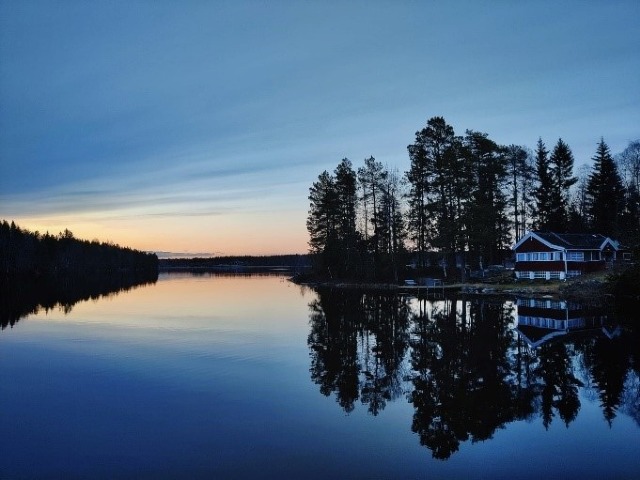Climate change-induced camouflage mismatch - Sweden, Umea
| Datum: | 09 september 2022 |
| Auteur: | Pieter Otte |

In January 2022 I started as a research intern at the Swedish University of Agricultural Sciences (SLU) in Umeå, Sweden. During the first year of my master's Ecology & Evolution I decided to go abroad in my second year for my second research project. After consulting my mentor, I came in contact with Professor Joris Cromsigt and researcher Tim Hofmeester of the Department of Wildlife, Fish, and Environmental Studies.
Together we decided that I will repeat a study from Poland, in Northern Sweden. I studied how a camouflage mismatch between animals expressing a white seasonal colour coat and climate change-induced reduction of snow cover would affect their survival. To do so, I created an experimental setup using camera traps and decoy animals. This meant conducting fieldwork under, for me, completely new circumstances: harsh winter weather. In periods with multiple meters of snow and -10 degrees, I set out to check cameras and displace my set-up. From the data gathered I concluded that, due to climate change, animals that become white in winter will have reduced survival as their camouflage is mismatching with their environment.

During my research, I learned how to work with new methods, conduct fieldwork under new conditions and perform new analyses, from which I learned a lot. Besides my research, I also learned a lot from the people that I met within the department, from master students to professors, all from different nationalities. Thanks to the multiple fikas (a Swedish tradition of having a coffee break), I got in contact with many researchers and learned about different research but also new insights about topics unrelated to research. This was almost just as valuable as my own research.
Life in Umeå was amazing. It’s a city with a lot of international students, who are all set out to meet new people. Although there is not much to do in the city, the surrounding of Umeå is amazing. In just a few minutes you can walk in beautiful forests, and in just one hour (by car) you can spend the night in cabins in one of Sweden’s national parks.
I am very grateful that I got the opportunity to study abroad, and I would highly recommend it to every student. In addition, I am grateful for the funding granted to me by the Groninger universiteitsfonds, who made partially made this possible.

